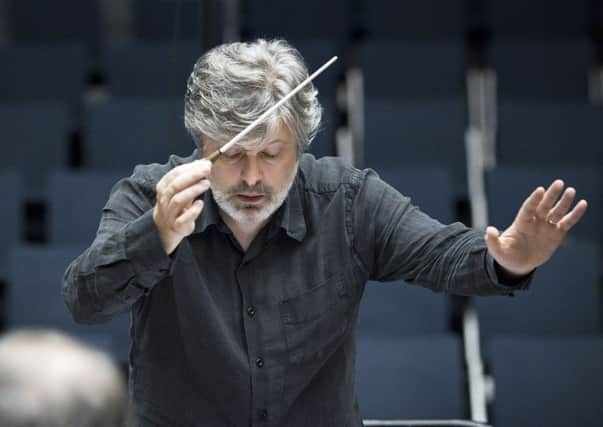Music interview: James MacMillan on the TheoArtistry Festival


A clue to the musical focus of the event lies in the presence of composer Sir James MacMillan, a visiting professor in the university’s theology department.
Together with ITIA director Dr George Corbett, he has co-curated an event that will bring together theologians, practising church musicians, the poet Michael Symmons Roberts (a long-time collaborator with MacMillan), the excellent in-house St Salvator’s Chapel Choir, and – most importantly – an international group of young composers who, for the past year, have been actively involved with Corbett and MacMillan in the TheoArtisty Composers’ Scheme.
Advertisement
Hide Ad“It’s all part of a wish by ITIA to make its function more than simply academic,” MacMillan explains. “They knew I was interested in questions about engaging with the community, how theologians engage with the musical world, so I thought, why don’t we devise a project that involves bringing young composers together in seminars with thinkers here in St Andrews, team them up and see what happens. This week is the outcome.”
The festival will be framed by two key performance events. The first takes place tomorrow in St Salvator’s Chapel: a recital by Wells Cathedral organist Matthew Owens, playing music by Kenneth Leighton, Arvo Pärt, Judith Bingham, Huw Watkins, and others whose music offers a modern slant on the historic church organ tradition.
The final event on Tuesday evening, featuring the celebrated St Salvator’s Chapel Choir, under its director Tom Wilkinson, marks the launch of its latest CD, Annunciations, which is a sequence of six new choral pieces based on the Old Testament “annunciations” written by the TheoArtistry course composers.
If that all seems like a cosy gathering of church music luvvies, the intention of the event is far removed from that.
There’s a danger, warns MacMillan, that we begin to confuse sacred music with liturgical music for the church. “I’ve already seen headlines suggesting that this event is all about Christian music, which may lead people to think it’s all about gospel music,” he says. “But there’s a very big difference between Christian music and sacred music.”
It is a subject central to MacMillan’s own artistic output. Yes, he’s written screeds of music for everyday liturgical use, highly accessible for ordinary singers and blessed with a common touch. But equally his non-church music possesses a universal sacredness that is more infinite, more transcendental in its ambitions.
Advertisement
Hide AdIt’s a subject bound to ignite heated debate in two consecutive sessions on Monday at the Byre Theatre. The first deals with Sacred Music in the Church, discussed by Matthew Owens from the Anglican tradition and Michael Ferguson, director of music at St Mary’s Roman Catholic Cathedral in Edinburgh. The second, Sacred Music Outside the Church, features Jonathan Arnold, author of Sacred Music in Secular Society.
An obvious concern raised by the first of these topics is surely the impact of falling church attendance. Take the situation in Scotland, where a mere 7 per cent of Scots now attend church, 56 per cent of whom are 65 or over. That doesn’t bode well for the future of liturgical music. Will there be anyone left to sing or listen to it in 20 years or so?
Advertisement
Hide Ad“I don’t think that is something that necessarily concerns our composers,” says MacMillan. “Certainly, what excites me most is bringing sacred music into the secular concert hall. I think there is scope for sacred music to be concert music, and that means a breakdown of boundaries between the sacred and secular, and a truer understanding of what sacred music actually might be.”
I’m reminded here of philosopher Roger Scruton, who has long argued the existence of a “sacred core” in the human psyche; that such a transcendental dimension, even in an increasingly secularised world, is key to achieving the purest form of artistic creativity.
It all boils down to what the “sacred” in music actually is. Discuss.
The TheoArtistry Festival, Sacred Music for the 21st Century runs until 6 March